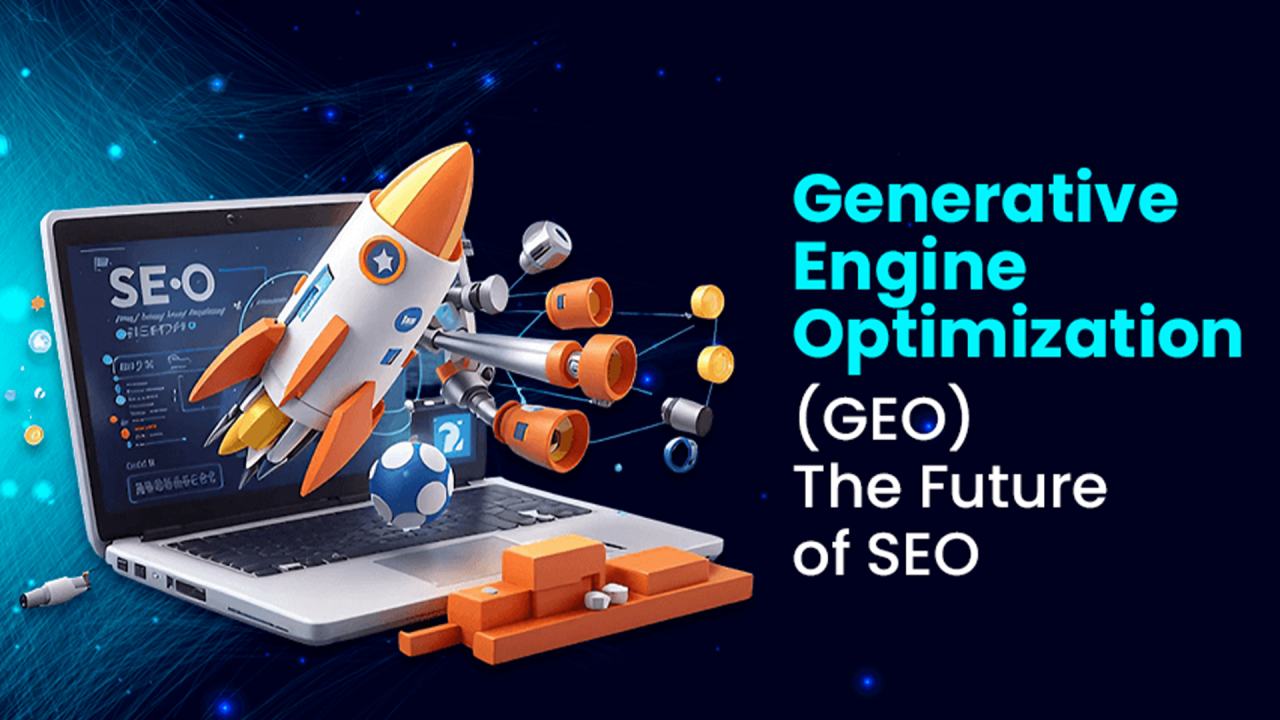Search engine optimization (SEO) has evolved significantly over the years. With the rise of AI-driven search engines like Google’s Search Generative Experience (SGE), a new era of SEO is emerging—Generative Engine Optimization (GEO). This approach focuses on optimizing content for AI-generated search results rather than traditional search engine rankings.
What Is Generative Engine Optimization (GEO)?
Generative Engine Optimization (GEO) is the practice of tailoring content to perform well in AI-powered search results. Unlike traditional SEO, which relies on keywords and backlinks, GEO prioritizes:
- Conversational search queries
- AI-generated summaries
- Contextual understanding
Instead of simply ranking web pages, AI-driven search engines generate answers based on multiple sources. GEO helps businesses ensure their content is selected and displayed in these AI-generated responses.
Why GEO Matters for SEO Services?
As AI-driven search engines become more popular, businesses need to adapt their SEO strategies. GEO is crucial because:
- AI search engines provide direct answers – Users may not need to click on traditional search results.
- Content needs to be more relevant – AI prioritizes high-quality, trustworthy information.
- Voice search and chatbots are growing – Optimizing for natural language queries is more important than ever.
SEO services must evolve to focus on creating content that aligns with AI-generated search experiences.
Key Strategies for Generative Engine Optimization
To stay ahead, businesses should implement these GEO strategies:
1. Focus on Natural Language Content
AI-driven search engines understand and generate human-like responses. To optimize for GEO:
- Write content in a conversational tone.
- Use simple, clear language.
- Answer questions directly and thoroughly.
2. Optimize for AI Summaries
Generative search engines pull information from multiple sources to create summaries. To increase your chances of being featured:
- Provide well-structured, factual content.
- Use headings, bullet points, and lists for clarity.
- Include concise answers to common questions.
3. Enhance Topical Authority
AI prioritizes content from authoritative sources. Improve your website’s credibility by:
- Publishing in-depth articles on specific topics.
- Linking to reputable sources.
- Keeping information accurate and up-to-date.
4. Leverage Structured Data
Using schema markup helps AI search engines understand your content better. Implement structured data to:
- Highlight key details (e.g., FAQs, reviews, how-to guides).
- Improve visibility in AI-generated results.
- Enhance click-through rates from search snippets.
5. Improve Content for Conversational Search
With the rise of AI assistants, optimizing for voice and chat-based queries is essential. Ensure your content:
- Includes long-tail, question-based keywords.
- Mimics how people naturally ask questions.
- Provides clear, direct answers.
The Future of SEO Services with GEO
As AI search engines continue to evolve, SEO services must adapt to ensure businesses remain visible. Traditional SEO techniques like keyword stuffing and link-building will no longer be enough. Instead, businesses must focus on:
- Delivering high-quality, user-focused content
- Building trust and credibility in their industry
- Optimizing for AI-driven search experiences
Final Thoughts
Generative Engine Optimization (GEO) represents the next phase of SEO. By embracing AI-driven search trends and refining content strategies, businesses can stay ahead in the digital landscape. As SEO continues to change, those who adapt will have the greatest success in securing online visibility.

Comments
Post a Comment